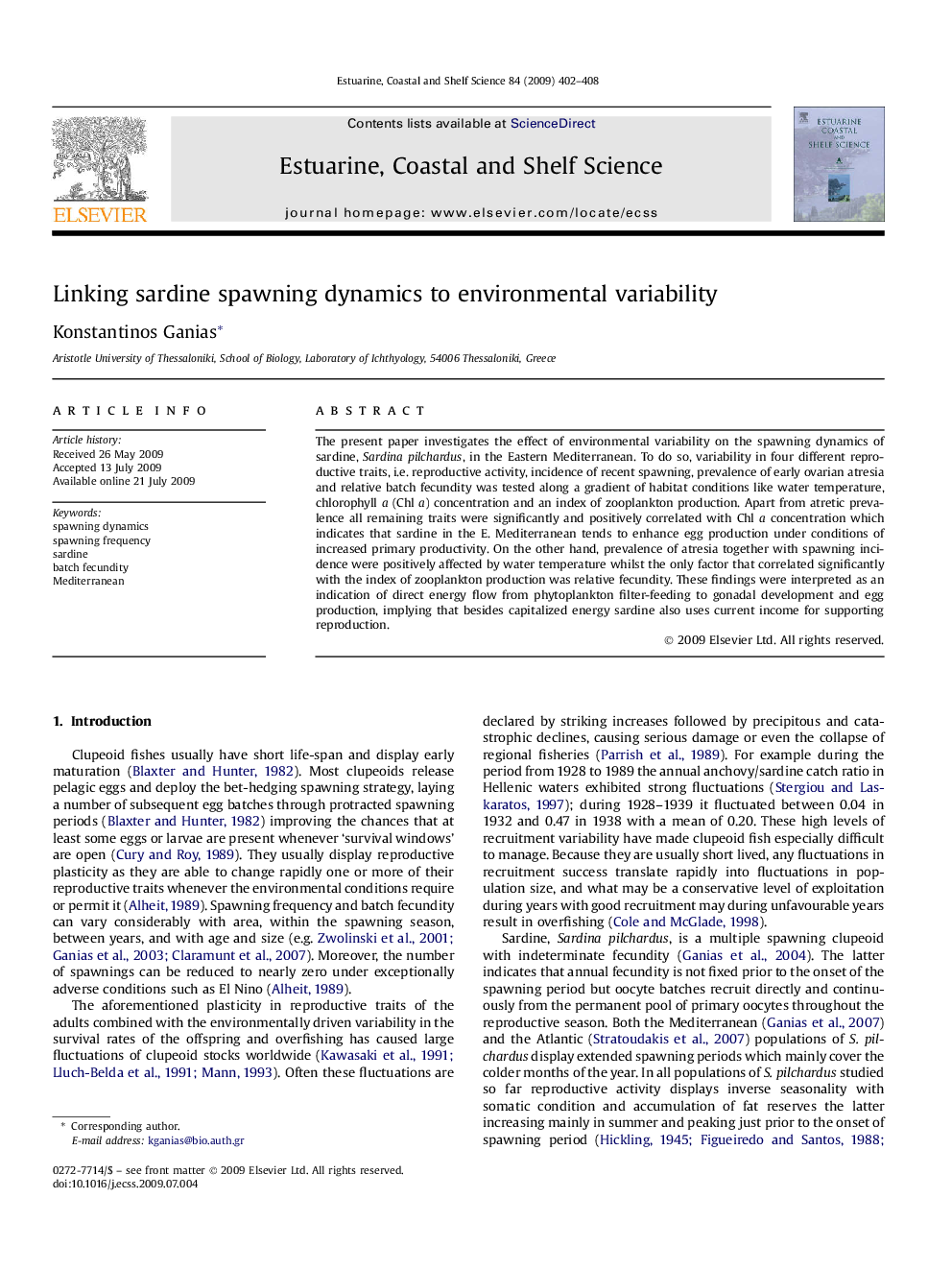| Article ID | Journal | Published Year | Pages | File Type |
|---|---|---|---|---|
| 4541018 | Estuarine, Coastal and Shelf Science | 2009 | 7 Pages |
The present paper investigates the effect of environmental variability on the spawning dynamics of sardine, Sardina pilchardus, in the Eastern Mediterranean. To do so, variability in four different reproductive traits, i.e. reproductive activity, incidence of recent spawning, prevalence of early ovarian atresia and relative batch fecundity was tested along a gradient of habitat conditions like water temperature, chlorophyll a (Chl a) concentration and an index of zooplankton production. Apart from atretic prevalence all remaining traits were significantly and positively correlated with Chl a concentration which indicates that sardine in the E. Mediterranean tends to enhance egg production under conditions of increased primary productivity. On the other hand, prevalence of atresia together with spawning incidence were positively affected by water temperature whilst the only factor that correlated significantly with the index of zooplankton production was relative fecundity. These findings were interpreted as an indication of direct energy flow from phytoplankton filter-feeding to gonadal development and egg production, implying that besides capitalized energy sardine also uses current income for supporting reproduction.
